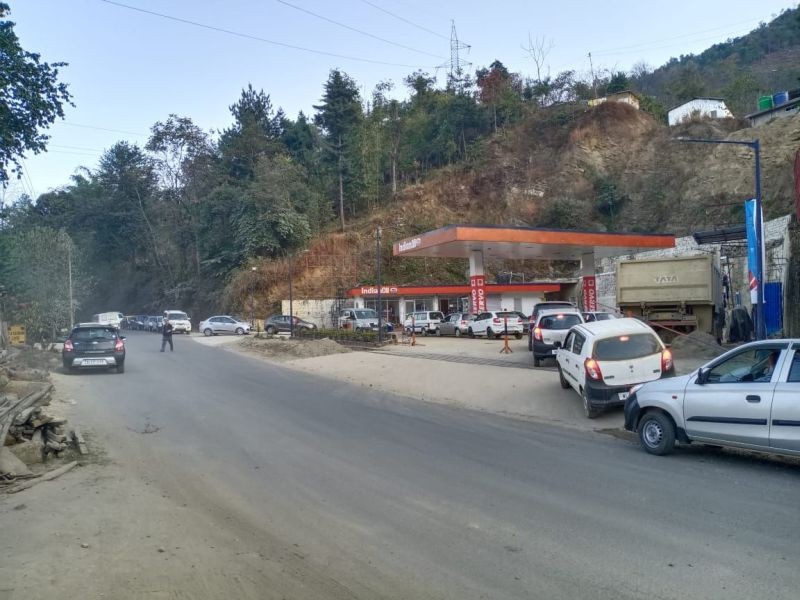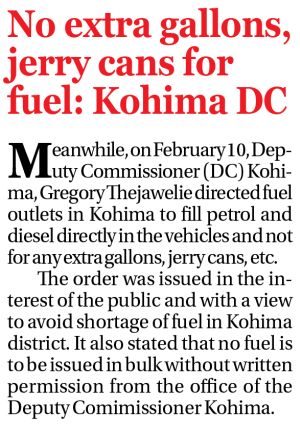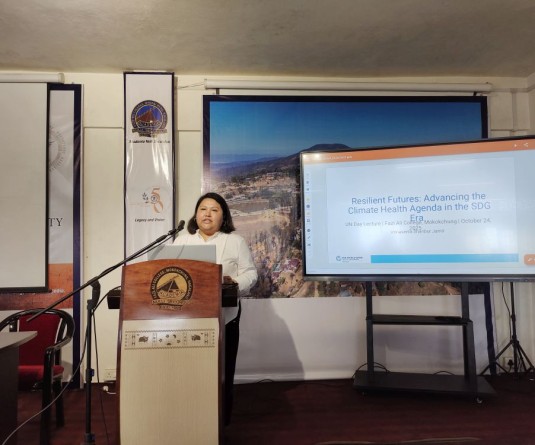Vehicles lining up at a fuel outlet in Kohima on February 10. The State Capital has been facing shortage of fuel since the closure of the Patkai Bridge-Kukidolong stretch of the NH 29 following a major rockslide on February 2. (Morung Photo)

Morung Express News
Kohima | February 10
"It has been two days since I went to the fuel station and returned empty handed. This morning I went to the station at 4 am and waited for two hours but did not receive any petrol," a Kohima citizen shared on Wednesday.
For the past few days, the State Capital Kohima has been facing a shortage of fuel with long queues of vehicles being a common sight across the fuel stations in the Capital.
The shortage began soon after the Patkai Bridge-Kukidolong stretch of the NH-29 road was closed due to rockslides. Several fuel stations across Kohima closed down by afternoon on February 5, as citizens panicked and rushed to fill their vehicles.
"In the midst of shortage of fuel supply, people are panic buying which is making the situation even worse," said another citizen.
By February 9, some of the fuel stations had set a limit of purchase to Rs 1000 per vehicle.
For Ronald Difoe, Assistant Professor, the ongoing fuel crisis in Kohima could have been avoided had there been effective coordination between the two district administration of Kohima and Dimapur. "Consistent fuel supply in the Capital is necessary and important for maintaining a control over the price of commodities and other allied products. Therefore, the administration needs to ensure effective supply of fuel so that there is no artificial price rise in the market of Kohima," Difoe opined.
He further maintained that an alternative pliable road is necessary.
Difoe also viewed that the shortage of fuel in the Capital should not be the reason for pinching the middle class and marginalized people in Naga society.
Coordination is the key factor to overcome such local challenges; he viewed, while adding that, "Better management and effective coordination of Administration will resolve all these bottlenecks.”




